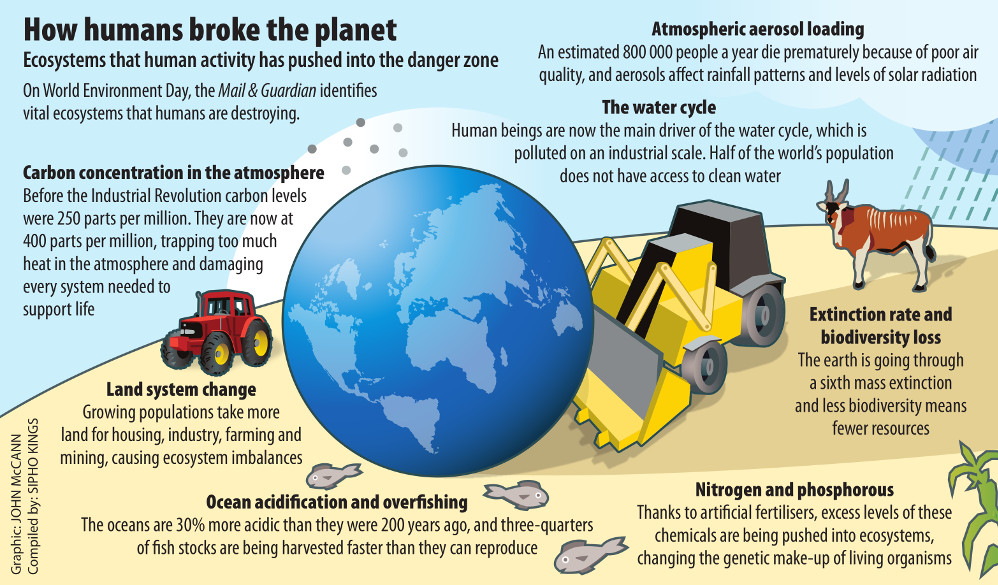2014 was the hottest year ever recorded.
If we continue with business as usual, ecosystems will collapse and no longer be able to sustain life in its current form. This has happened many times before, but not in the age of human civilisation.
This is the dismal picture that people must face on June 5, World Environment Day, and it emerges from a wealth of research studies.
In just 200 years of burning fossil fuels, humans have managed to reverse the cooling trend the world had been going through. The past 10 years have all broken records, and 2014 was the hottest year ever recorded. According to current Nasa estimates, the past two months are, on average, the hottest two ever recorded for this time of year.
This has driven usually calm scientists to speak with ever-increasing alarm. Stefan Rahmstorf, a professor of physics at the Potsdam Institute for Climate Impact Research and a lead author for the United Nation’s climate body, said: “We are creating a very different planet, one that is way out of the entire experience of human civilisation.”
The Intergovernmental Panel on Climate Change, which collates climate research from around the world, warned last year that irreversible change is happening. This could lead to a world that would be 6°C warmer by the end of the century, it said, and the effects was already being felt in many parts of the world.
“African ecosystems are already being impacted by climate change, and future impacts are expected to be substantial.”

This will mean a 6°C increase in temperatures in South Africa by the middle of this century. The country has already seen a 0.8°C rise in the past century, with a resulting increase in rainfall uncertainty and crop failures.
“Africa as a whole is one of the most vulnerable continents due to its high exposure and low adaptive capacity,” the intergovernmental panel said.
Even without the extreme effect climate change will have, the environment itself is in dire straits. The World Health Organisation said last year that 800 000 people a year die prematurely because of air pollution. A billion people go to bed hungry. Half the world’s population does not have access to clean drinking water.
Much of the blame for pollution is put on the doorstep of large corporates, who externalise the costs of their operations. These are then borne by people in the vicinity, who pay more to treat conditions such as asthma, or have to buy water instead of using their own, now-polluted, water sources.
The theme for June 5 takes cognisance of this shared environment – “Seven billion dreams. One planet. Consume with care.”
There are many people already doing this. But South Africa is a wasteful country, and companies such as Pickitup are dealing with landfill sites that are nearly full. People such as Mike Bobby show that there are other ways to use commodities and other ways to organise society.
In the international arena there are also signs that the current trajectory – which links gross domestic product and carbon emissions intimately – can be changed. Christina Figueres, the executive secretary of the Intergovernmental Panel on Climate Change, said last month that this would be the hardest task in human history. But the momentum was going the right way, she said.
In December every single country in the world will agree to a text at the climate change negotiations in Paris that puts the world on a trajectory to lower its carbon emissions. The end goal will be to have a carbon-neutral world economy by mid-century.
If this happens then the next World Environment Day will be a markedly more optimistic affair.